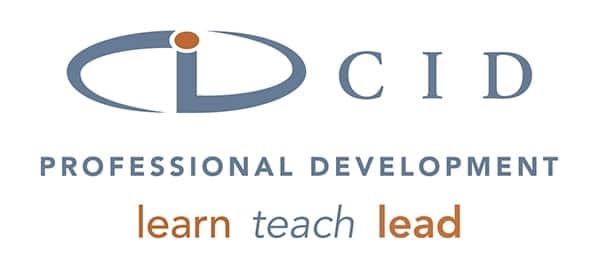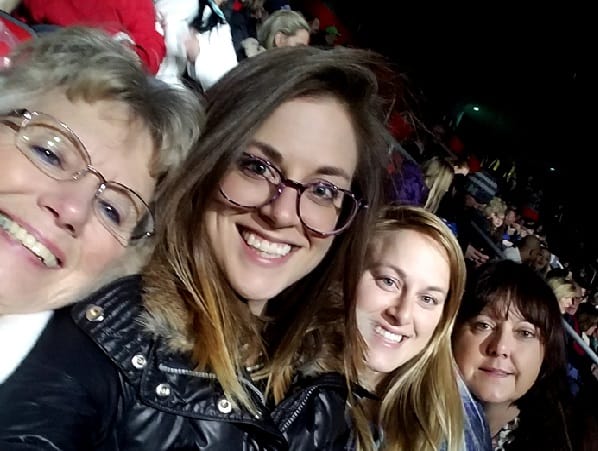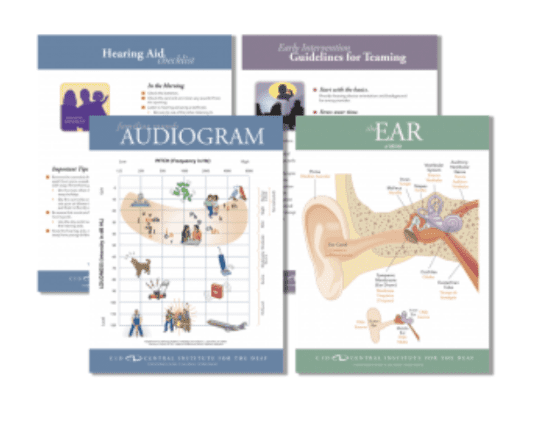This is our final post in a series devoted to learning about the Kesteloot family’s journey with hearing loss. In this post, Stephanie, Sam’s twin, shares her perspective on growing up with a sister with hearing loss. If case you missed them, catch up on part 1, part 2 and part 3.
Q: Growing up, did you feel your parents treated Sam differently than you? If so, how?
A: Yes, I do feel Sam was treated differently than me; however, I don’t think any two siblings are ever treated the same. Kids are unique and have personality differences that I assume parents handle in different ways. Because Sam was diagnosed with hearing loss around the age of four and is my only sibling, I have no other dynamic to compare it to. My parents advocated for my sister in every way they knew how, and this wasn’t needed as much for me since I do not have hearing loss. My parents held us to similar standards academically. We both took AP courses in high school. We were both involved in cheerleading, student government and other extracurricular activities. Our parents worked extremely hard to give Sam and I both the best opportunities in life, and I think we’ve both been able to capitalize on our own strengths.
Q: Did you ever feel jealous or resentful of Sam?
A: When I was a young child (six or seven) I had moments when I lashed out in anger, but at that age I certainly didn’t understand the reasons why. I think I would tell my parents, “I hate my sister.” I believe this is because I was jealous of the attention Sam received that I didn’t. As we got older, there were moments when I was definitely jealous, but this was due to typical teenage sister stuff–she was more outgoing, prettier, skinnier and she excelled at subjects I struggled with.
Q: How did you explain Sam’s hearing loss to friends?
A: Growing up, we had a lot of the same friends, so that was pretty easy. Once I got to college and into adulthood I would tell my friends, “Hey, my sister is coming over. Just so you know, she has a hearing loss. She reads lips really well so try to look at her when you talk.” Depending on the friend and the situation, I’d tell them the sounds she struggled with. If they asked for more detail, I’d explain the experimental medicine we were given because we were premature and how it affected her hearing. Sam has developed great coping skills though, because 100% of the time, my friends tell me they never would have known about her hearing loss if I wouldn’t have told them.
Q: Did you feel a sense of responsibility for “helping” Sam? If so, in what ways?
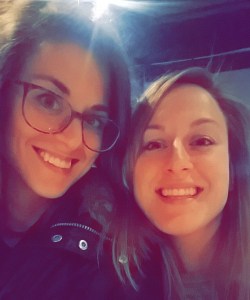
Q: What advice can you give to siblings of a child with hearing loss?
A: Be patient. Even though we know and understand our sibling’s hearing loss, we can also be the first ones who snap when they don’t hear us or ask us to repeat information. Practice compassion as much as you can.
Maintain perspective. What may look to you like, “Oh, she laughed, she knows what’s happening,” could be your sibling thinking, “I have no idea what’s happening, so I’m just going to laugh since everyone else did.”
You will each remember your childhoods differently, but it is important that you both come out with love and respect for each other.
There is not a person in my life whom I am prouder of than Sam. She has overcome significant challenges and has proven she really can do anything she sets her mind to.
——————————-
Thank you, Stephanie and the entire Kesteloot family for sharing your story with us. Your honesty and openness about hearing loss are inspiring and helpful to not only other families on this journey, but also to the professionals who provide their wonderful support. Thank you!
Read Part 1
Read Part 2
Read Part 3
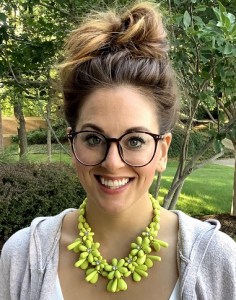
Sam Kesteloot, AuD, received her doctoral degree in audiology from Wayne State University. She recently completed her externship at CID-Central Institute for the Deaf and has accepted a position as an audiologist in the Trenton School District in Michigan.
Interview conducted by Jessica Klein, MS, CCC-SLP
